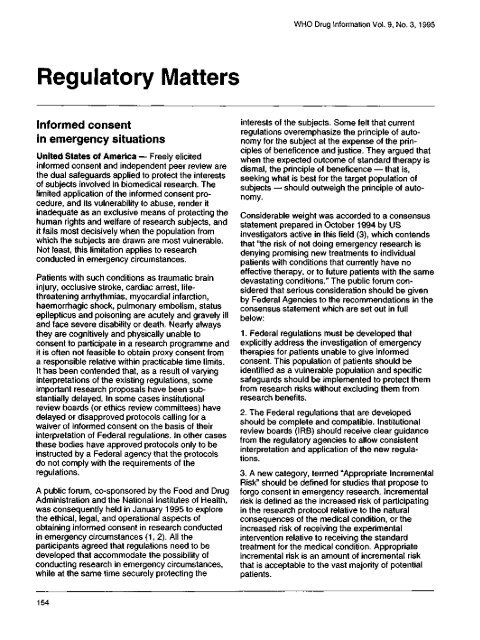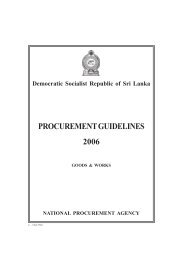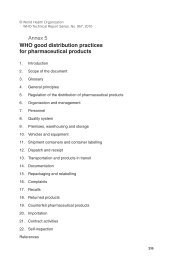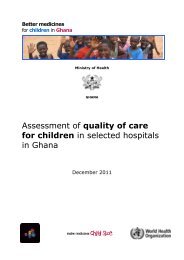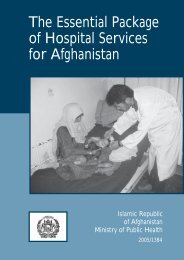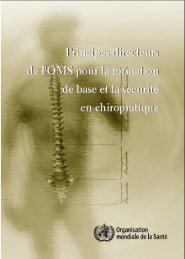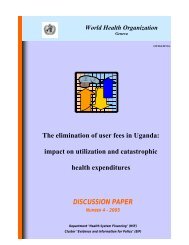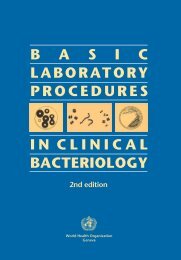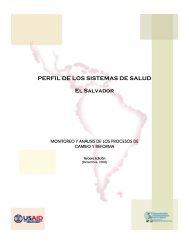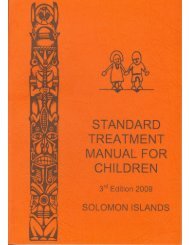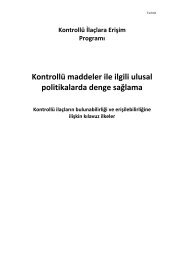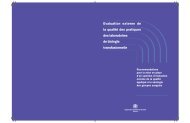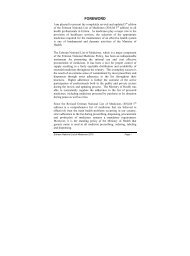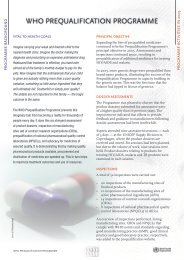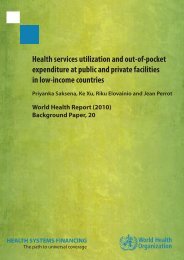WHO DRUG INFORMATION - World Health Organization
WHO DRUG INFORMATION - World Health Organization
WHO DRUG INFORMATION - World Health Organization
You also want an ePaper? Increase the reach of your titles
YUMPU automatically turns print PDFs into web optimized ePapers that Google loves.
Regulatory MattersInformed consentin emergency situationsUnited States of America — Freely elicitedinformed consent and independent peer review arethe dual safeguards applied to protect the interestsof subjects involved in biomedical research. Thelimited application of the informed consent procedure,and its vulnerability to abuse, render itinadequate as an exclusive means of protecting thehuman rights and welfare of research subjects, andit fails most decisively when the population fromwhich the subjects are drawn are most vulnerable.Not least, this limitation applies to researchconducted in emergency circumstances.Patients with such conditions as traumatic braininjury, occlusive stroke, cardiac arrest, lifethreateningarrhythmias, myocardial infarction,haemorrhagic shock, pulmonary embolism, statusepilepticus and poisoning are acutely and gravely illand face severe disability or death. Nearly alwaysthey are cognitively and physically unable toconsent to participate in a research programme andit is often not feasible to obtain proxy consent froma responsible relative within practicable time limits.It has been contended that, as a result of varyinginterpretations of the existing regulations, someimportant research proposals have been substantiallydelayed. In some cases institutionalreview boards (or ethics review committees) havedelayed or disapproved protocols calling for awaiver of informed consent on the basis of theirinterpretation of Federal regulations. In other casesthese bodies have approved protocols only to beinstructed by a Federal agency that the protocolsdo not comply with the requirements of theregulations.A public forum, co-sponsored by the Food and DrugAdministration and the National Institutes of <strong>Health</strong>,was consequently held in January 1995 to explorethe ethical, legal, and operational aspects ofobtaining informed consent in research conductedin emergency circumstances (1, 2). All theparticipants agreed that regulations need to bedeveloped that accommodate the possibility ofconducting research in emergency circumstances,while at the same time securely protecting theinterests of the subjects. Some felt that currentregulations overemphasize the principle of autonomyfor the subject at the expense of the principlesof beneficence and justice. They argued thatwhen the expected outcome of standard therapy isdismal, the principle of beneficence — that is,seeking what is best for the target population ofsubjects — should outweigh the principle of autonomy.Considerable weight was accorded to a consensusstatement prepared in October 1994 by USinvestigators active in this field (3), which contendsthat "the risk of not doing emergency research isdenying promising new treatments to individualpatients with conditions that currently have noeffective therapy, or to future patients with the samedevastating conditions." The public forum consideredthat serious consideration should be givenby Federal Agencies to the recommendations in theconsensus statement which are set out in fullbelow:1. Federal regulations must be developed thatexplicitly address the investigation of emergencytherapies for patients unable to give informedconsent. This population of patients should beidentified as a vulnerable population and specificsafeguards should be implemented to protect themfrom research risks without excluding them fromresearch benefits.2. The Federal regulations that are developedshould be complete and compatible. Institutionalreview boards (IRB) should receive clear guidancefrom the regulatory agencies to allow consistentinterpretation and application of the new regulations.3. A new category, termed "Appropriate IncrementalRisk" should be defined for studies that propose toforgo consent in emergency research. Incrementalrisk is defined as the increased risk of participatingin the research protocol relative to the naturalconsequences of the medical condition, or theincreased risk of receiving the experimentalintervention relative to receiving the standardtreatment for the medical condition. Appropriateincremental risk is an amount of incremental riskthat is acceptable to the vast majority of potentialpatients.


